THE LITERATURE OF THE SOVIET PERIOD
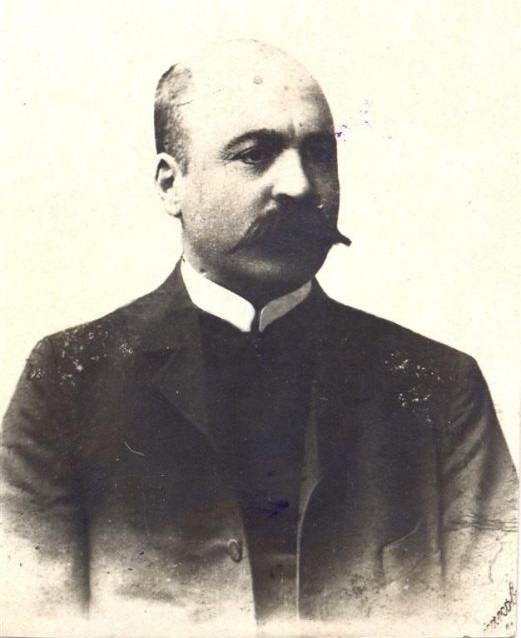
The Bolshevik Russia could not stay indifferent to the formation of independent Azerbaijan, which bordered with such Islamic countries as Iran and Turkey, in the southern borders of the communist empire. As a result, the first democratic government of Azerbaijan was overthrown by the 11th Red Army. This resulted in the establishment of a soviet government in Azerbaijan. J.Mammedguluzadeh and Huseyn Javid saw the true face of 'the proletarian dictatorship' and 'the paradise of communism' and seized its anti-Azerbaijan policy beforehand.
The repressions of the 1930s began in the very first months that the Soviet power was established. The first intellectual victim of that period was Firidun bey Kocherli (1863-1920), shot by Armenian dashnaks in a Ganja prison. He was the director of the Gazakh Teachers Seminary, the well-known scientist and literary critic, the author of the first multi-volume history of Azerbaijani Literature, and a great enlightener. Those repressions represent an extremely sad page in the history of Azerbaijani literature in the Soviet period. Many guiltless workers and peasants were among sentenced for no particular reason. The intellectuals were, however, the main victims of the Bolshevik and Dashnak persecution. It was evident that by means of murdering, deportation and sending to prisons of the best intellectuals of Azerbaijan, the Stalinists were trying to prevent the nation from self-recognition, to destroy moral traditions and turn the nation into blind slaves of the communist ideals. The executors of those "special" merciless orders, which came from the higher circles, were terribly afraid of intellectuals and were therefore merciless to scientists, who knew history, philosophy, language, alphabet, culture, psychology, national mentality. They exercised a similar approach to writers, poets and dramatists, who with their literary works written in the native language and closely associated with the national spirit, were preventing the destruction of national ideals; and to creative intellectuals as a whole.
Among the repressed artist of that time were well-known figures of Azerbaijan literature, arts, literary criticism and linguistics. The list includes, among others, the great dramatist H.Javid; a talented poet M.Mushfig, well-known prose writer and literary critic S.Huseyn; a poet and author of the first and only anthem of the Republic of Azerbaijan A.Javad; literary man and scientist Y.V.Chamanzeminli; the professor of philology, political scientist B.Chobanzadeh; the rector of the Baku State University and writer T.Sh.Simurg; the founder of the first Oriental Conservatoire in Baku Khadija Khanum Gayibova; a theologian scientist and Gazi of Baku Mir Mahammad Kazim aga; folklore expert H.Zeynalli, the great performers of tragic roles on our stage A.M.Sharifzadeh, U.Rajab and many others... Except for Y.V.Chamanzeminli and H.Javid, who died in the deportation and in prison, all the others were shot dead. Murderers did not pay attention to the age of their victims - they were judged and punished very quickly. One of the first translators of Gurani-Kerim in Azerbaijan, the Baku Gazi Mir Mahammad Kazim aga was shot at the age of 83 and M.Mushfig at the age of 29. In difficult and contradictory social condition Mikayil Mushfig (1908-1937) enriched the national poetry with immortal works alike "Ohu, tar!" (Sing, Tar). He only had time to create for 10 years, the smallest period known in the history of world poetry. Nevertheless, the works published during this period left deep traces in national literature. Mushfig's works are known for exciting feelings, romantic moods, fluency in the language. All these attributes ensure everlasting popularity and high artistic values of Mushvig's works.
Because of the global events in the first decades of the XX century and the social concussion in the region, especially after the occupation of the ADR and the following repressions of the 30s the creative intellectuals of Azerbaijan were constantly persecuted, and were obliged to migrate in order to survive and continue their literary activity.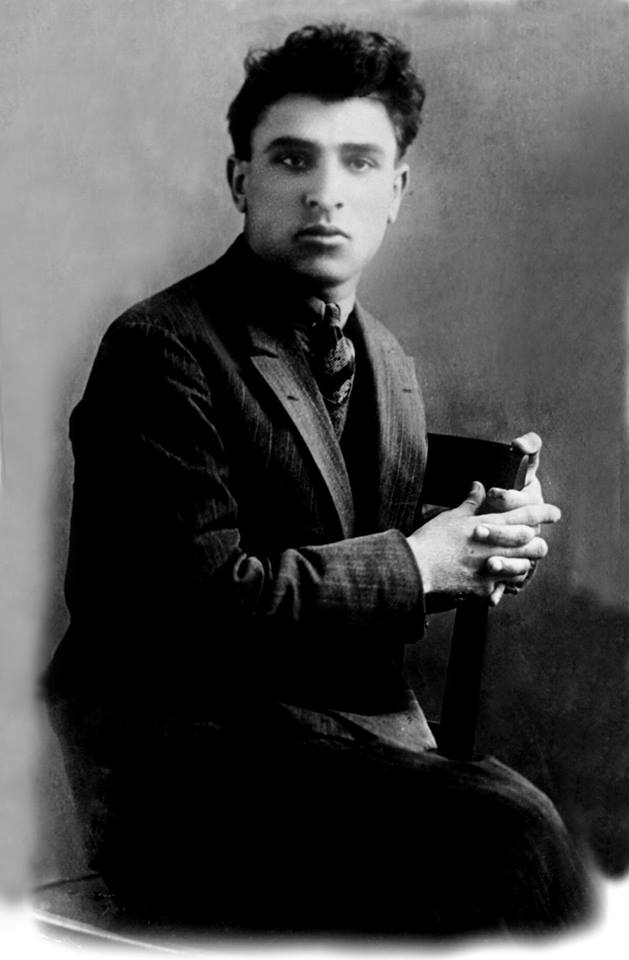 Those who were taken as prisoners of war and prohibited from returning to their homeland during the war against the German fascism had to find a shelter abroad and are scattered now through Asia, Africa, Europe, America and even Australia.
Those who were taken as prisoners of war and prohibited from returning to their homeland during the war against the German fascism had to find a shelter abroad and are scattered now through Asia, Africa, Europe, America and even Australia.
All intellectuals who migrated from Azerbaijan had something in common - they retained, represented and popularized the national literature and cultural mentality of Azerbaijan, the ideas of Azerbaijanism everywhere they settled. They did their best to draw the attention of foreign powers and communities to the troubles Azerbaijan was facing. Some of those who migrated from Azerbaijan is still writing today and got vast heritages of literature, scientific-philological articles and publications. These are Alibey Huseynzadeh, Ahmed bey Agaoglu, Mahammed Emin Resulzadeh, Mirza Bala Mahammedzadeh, Alimerdanbey Topchubashov, Jeyhun Hajibeyli, Samed Agaoglu, Ahmed Jaferoglu, Abdulvahab Yurdsever, Almas Ildirim, Benin (Ummulbanu), Nagi Sheykhzamanli, Mammad Sadiq Aran, Huseyn Jamal Yanar, Teymur Ateshli, Musa Zayam, Ibrahim Arslan, Ali Azertekin and many others. After Azerbaijan regained its independence the "Caucasian Days" novel by Ummulbanu, "The Black Epos" collection of poems by A.Ildirim, "Siyaseti-furuset" monograph by A.Huseynzadeh and "Azerbaijan poet Nizami" ('The poet of Azerbaijan Nizami') by M.A.Rasulzadeh, stories by J.Hajibeyli, publicism of M.B.Mahammedzadeh were published in Baku.
The dependence of literature on strict directives, violations of the freedom of the word, limitation of literature fantasies with the state policy and other negative facts led to depression, pessimism and passiveness in literature and cultural life.
Nevertheless, this period brought such talents as J.Jabbarli, M.Mushfiq, S.Vurgun, O.Sarivelli, R.Rza - greatly talented artists who frequently affected ideological frames with their Aesopian language. This fact rejects the theory that the literature was entirely dependent on the socio-political situation. We may prove it with a series of strongly patriotic poems 'Southern Cities', the poem 'A Mother and A Postman', gazelles dedicated to the pure feeling of thwart love written by Suleyman Rustam (1906-1989). He was strongly influenced by "The Golden Pens" by Aliaga Vahid (1895-1965) and started his creative life as a Komsomol poet. The delicate and deeply meaningful gazelles, created by the great poet Aliaga Vahid (1895-1965) during the period, when gazelles were deemed as an outdated and stylistically limited genre by the official circles, were immortalized by the love of people.
One of the most famous novelists was M.S.Ordubadi (1872-1950), who wrote several famous historical novels particularly. Novels "A Sword and A Pen", dedicated to the Atabeyler state of Azerbaijan and great Azerbaijani poet Nizami Ganjevi, as well as 'The Misty Tebriz', about the freedom movement in the south, written by him, have still preserved their historical and aesthetic value. It is impossible to forget about the role of Y.V.Chemenzeminli, the author of the novels "Iki od arasinda" ("Gan ichinde") and "Gizlar bulagi", Suleyman Rahimov (1900-1983), the author of the epopee "Shamo" and the novel "Sachli", Mir Jalal (1908-1978), the author of the novel "Achiq kitab" and laconic tales, Abulhasan Alekberzadeh (1904-1986), the author of the epopee "Dostlug galas?" and the novel "Yokhushlar", Mirza Ibrahimov(1911-1993), the author of the novels "Gelejek gun" and "Pervane".
The dramaturgy of the Soviet period is inseparable from the names of Huseyn Javid, Suleyman Sani Akhundov, Jafar Jabbarli, Mirza Ibrahimov, Samed Vurgun, Sabit Rahman, Anver Mammadkhanli, Ilyas Efendiyev, Shikali Gurbanov and others. Huseyn Javid (1882-1941) is a great playwright and a poet who enriched the literature of Azerbaijan with genre and the theme during his 30 year-long creativity. His works widened the sphere of the themes in our literature, brought global and deep conflicts, tender-hearted, passionate characters to our dramaturgy. He founded the genre of tragedy in verse with such works as "Ana", "Sheykh Sanan" and "Iblis". In the Soviet period, e enriched his creativity with plays "Peygamber" (1922),(the Prophet'), "Topal Teymur" (1925), ('Lame Teymur') "Knyaz" (1929), "Sayavush" (1933), "Khayyam" (1935), "Iblisin intigami" (1936) ('The revenge of the Devil') and the epics "Azer" (1923-1932).
Being the heir and the successor of the national dramaturgy founded by M.F.Akhundzadeh, Jafar Jabbarli (1899-1934) enriched it with the problems and the heroes presented in "Ogtay Eloglu", "Od gelini", "Sevil", "Almas".
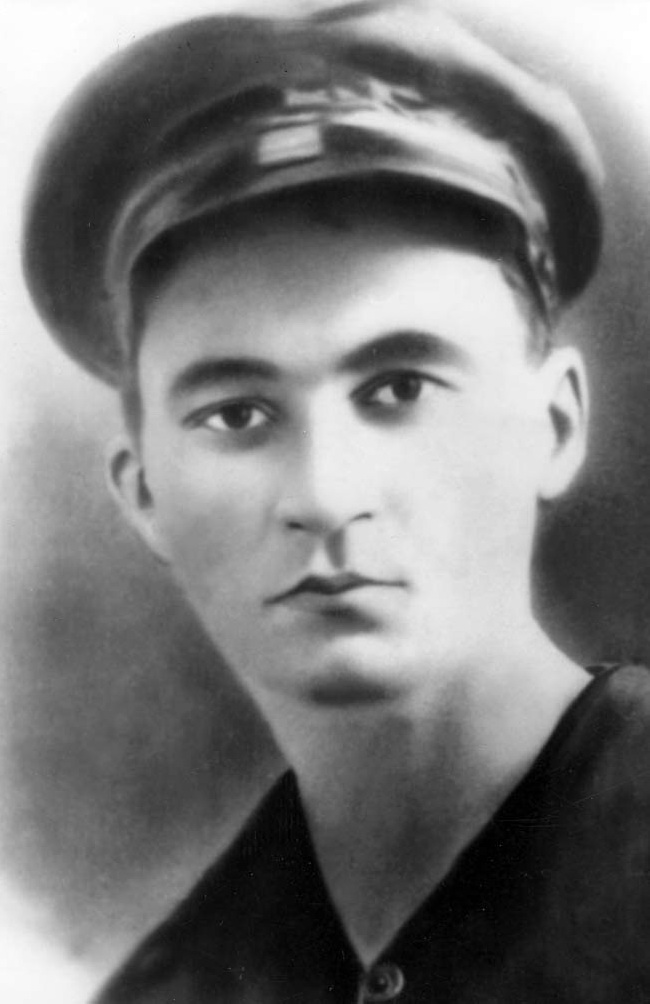
Samad Vurgun (1906-1956) was one of the great poets and play-writers o the Soviet period Azerbaijan literature. He philosophically perceived the mysterious beauty of Azerbaijan nature, the history of the heroism of Azerbaijan people, our humanist values and reflected them in his poems and epics with a special romantic significance. The past century Azerbaijan poetry is bound, for the national character of its language, harmony, figurativeness to the creativity of S. Vurgun, his poem 'Azerbaijan', epic poems 'Aygun'and "Mugan", as well as dramas in verse "Vagif" and "Insan". The importance of 'Vagif' in the process of self-realization of Azerbaijan people in the period of constant suppression of the Soviet regime, can be compared with the role of 'Korolu' opera by Uzeyir Hajibeyov.
The poems and the epics written by Rasul Rza (1910-1981) in free measure played a particular role in the development of poetic conscience in the Soviet period of Azerbaijan literature. The poetry of innovator R.Rza is distinguished with philosophical lyricism, the vividness of the ideas and the emotions and original poetic characters. His philosophical poems from series of 'Rengler' ('Colours"), lyrical epic poems 'Fuzuli' and "Gizilgul olmayaydi" are the best patterns of Azerbaijan poetry.
One of the major peculiarities of Azerbaijan literature in the Soviet Period as its constant ruling by ideological organs, the direction of literary activity by directives. The main was: the resolution 'About the policy of the Party in artistic literature' by CC RK(b)P is 1925, the decision 'About reconstruction of literary-artistic organizations' by CC CUK(n)P in 1932 and 'About the periodicals 'Zvezda' and 'Leningrad'' in 1948, the decision 'About the condition of Azerbaijan Soviet Literature and measures for its improvement' by CC Azerbaijan K(b)P is 1948, the decision 'About literary-artistic criticism' by CC Sov.UKP in 1972 and many other political directives. The artistic method of socialist realism defined at the First Common United Congress of Soviet writers in 1934 restricts the activity of the artists and made them continue their creation within definite frames. After criticism of 'Zvezda' and 'Leningrad' for supposed misinterpretation of the soviet way of life and swelling of faults in social life one may notice in Azerbaijan literature the appearance of patterns based in 'conflictlessness', as well as in the literature of other people of USSR.
Ilyas Efendiyev (1914-1996) is distinguished with his special role in enrichment of Azerbaijan verse with vivid, lively, artistic characters and different devices, as well as development of psychological-lyrical style of dramaturgy. A generation of actors and producers had been grown up in performances staged upon 15 plays created by him during half of the century ('Sen hemishe menimlesen", "Mehv olmush gundelikler", "Mahni daglarda galdi", "Bullur sarayda", "Hurshidbanu Natavan"), appeared 'the theatre of Ilyas Efendiyev'. Ali Veliyev, Huseyn Ibrahimov, Huseyn Abbaszadeh, Bayram Bayramov, Jemil Alibeyov, Vidadi Babanli, Eleviyye Babayeva, Suleyman Veliyev, Azize Ahmedova, Afgan Asgerov, Gulhuseyn Huseynoglu, Alibala Hajizadeh and others brought new themes to Azerbaijan verse and filled it with new personages.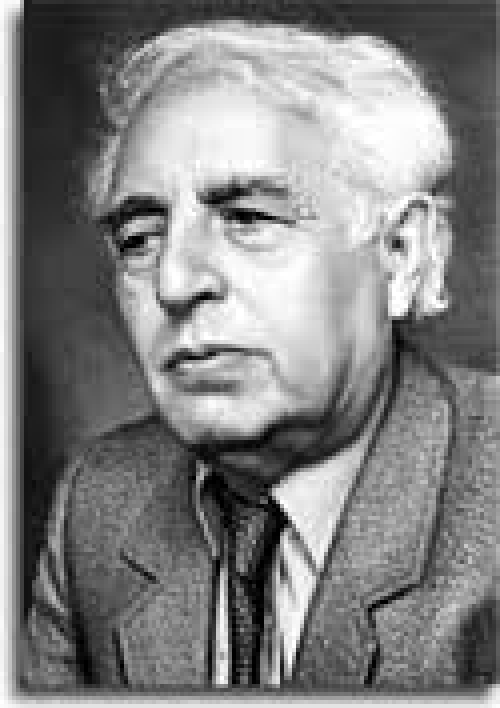
Beginning with the 60-s, softening of social-political atmosphere and with the weakening of ideological ties of USSR, appeared young talented artists with works criticizing political situation of that time. Among them were such prosaists and poets as Isa Huseynov, Mammad Araz, Sabir Ahmedov, Anar, Akram Aylisli, Elchin, Sabir Rustamkhanli, Alekber Salahzadeh and Ferman Kerimzadeh. One should especially name Ismayil Shikhli (1919-1994), recently started his creative activity and his novel 'Deli Kur '. Like their predecessors, the abovementioned artists used the symbols and the language of Aesop. This process was already irrevocable and could be evaluated as the 'beginning of the end'. The cross to the 60-s got its beginning and continued with the participation of the generation of 40-s and 50-s and the earlier periods. Many works of an innovator Rasul Rza (1910-1981), especially poems known under the name "Gizilgul olmayaydi" and "Rengler", "Sari dana", "Kefli Iskender", "Men torpagam" Should be considered to be the first patterns on this aspect. The novel "Yeralti chaylar denize akhir", by Mehdi Huseyn (1909-1965), well known as prosaist, play-writer and critic, reflects the real description of the fortunes of the personages with the same mood. Nevertheless, the great event of the literature of 60-90-s the appearance of 'sixtieths'. So after this appearance turned into the real moral opposition to military regime with whole its spirit and essence, thus played an active role in the moral ideal formation of today's national movement for democracy and independence.
First of all the 'Sixtieths' deepened its attitude towards the man and his inner world. The literature always based on the man and it goes without saying that literature was named 'study of human nature'. The attractive point is that the 'Sixtieths' returned the topic of a 'man' into the literature as a new problem of the time. The depth of the moral-psychological world of a person, an individual, simple members of the society were the aspect which interested them. The time, the moral reality in their narrative and stories were not understood as 'social system and structure' but as the aesthetic world of conscience, as the criterion of ethics and culture and turned into the subject of literary analysis. Thoughts and imagination of the heroes in these works contradicted the conception of 'a soviet man' in the literature. The popular personages of the 'Sixtieths' are pure lovers of justice, whose strangeness was looked upon as madness, who could not find their place in the society and thus sometimes wandering, nevertheless being the real human, admiring human feelings. In novels and narratives of historical character, we often see the view of the history of the state system, the past rich with the heroism of the people urged to forget their national beginning and state traditions under socialist suppression, their dreams of freedom and independence.
Movement for freedom of word and thought, for freedom of political thought, pluralism, national sovereignty and social justice, began in the literature and continued in 70-90-s, realized its perspective purposes after Azerbaijan get political independence and sovereignty.
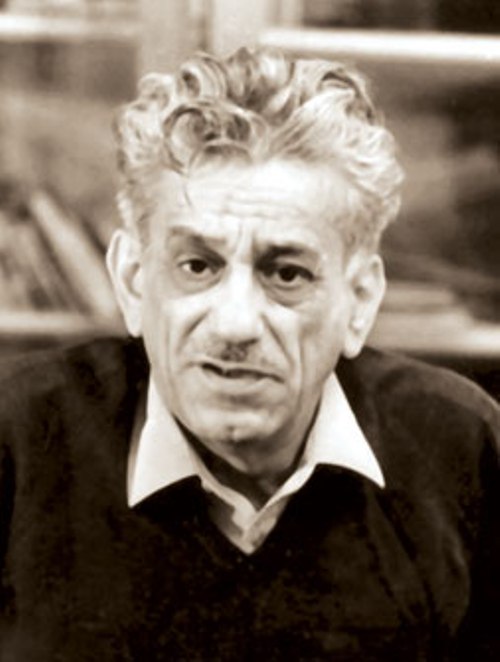 In the poetry and dramaturgy of such artists as Bahiyar Vahabzadeh (1925), Nabi Khazri (1924), Nariman Hasanzadeh (1931) we may seize the abundance of honourable pages of the history of people and corresponding lyrical and psychological moments. Poems of abovementioned poets, as well as the poems, different with their actuality and the epic 'Nasimi' by Gabil (1926) the works of Adil Babayev, Islam Safarli, Huseyn Arif, Gasim Gasimzadeh, Aliaga Kurchayli, are valuable patterns of our literature.
In the poetry and dramaturgy of such artists as Bahiyar Vahabzadeh (1925), Nabi Khazri (1924), Nariman Hasanzadeh (1931) we may seize the abundance of honourable pages of the history of people and corresponding lyrical and psychological moments. Poems of abovementioned poets, as well as the poems, different with their actuality and the epic 'Nasimi' by Gabil (1926) the works of Adil Babayev, Islam Safarli, Huseyn Arif, Gasim Gasimzadeh, Aliaga Kurchayli, are valuable patterns of our literature.
Ali Kerim (1931-1969), Khalil Rza (1932-1994), Jabir Novruz (1933-2002), Mammad Araz (1933-2004), Fikret Goja (1935), Fikret Sadig (1930), Alekber Salahzadeh (1941), Isa Ismayilzadeh (1941), Sabir Rustamkhanli (1946), Famil Mehdi (1934-2002), Tofig Bayram (1934-1991), Arif Abdullazadeh (1940-2002), Huseyn Kurdoglu(1934-2003), Ilyas Tapdig (1934), Musa Yagub (1937), Chingiz Alioglu (1944), Nusrat Kesemenli (1946-2001), Zalimkhan Yagub (1950), Ramiz Rovshan (1946) and other poets created new basis for new level of Azerbaijan literature and played an active part in this process.
Anar (1938) is one of the talented representatives of New Azerbaijan verse. The first successful original patterns of Anar's narration is 'Agg liman' ('White port')(1967). He is also famous as a play-writer and the scrip writer. The scripts of "Dede Gorgud", "Uzun omrun akkordlari" ('Chords of a long life'), the dramas "Sheherin yay gunleri" ('Summer days of the city'), "Tehmine and Zaur" are ones enlarging Azerbaijan literature.
Elchin (1943) is representative of the same flow. The narrations "Dolcha", "Baladadashin ilk mehebbeti", "Shushaya duman gelir", series of stories, novels "Mahmud and Maryam", "Ag deve", "Olum hokmu" , palys "Menim erim delidir", "Menim sevimli delim" brought him to the level of well-known representatives of modern Azerbaijan literature. Being at the same time a literary critic is the author of monographs "Tenqid ve edebiyyatimizin problemleri" ('Critics and the problem of our literature'), "Klassikler ve muasirler" ('The classics and the contemporaries'), "Cazibe sahesi" ('the sphere of attraction').



